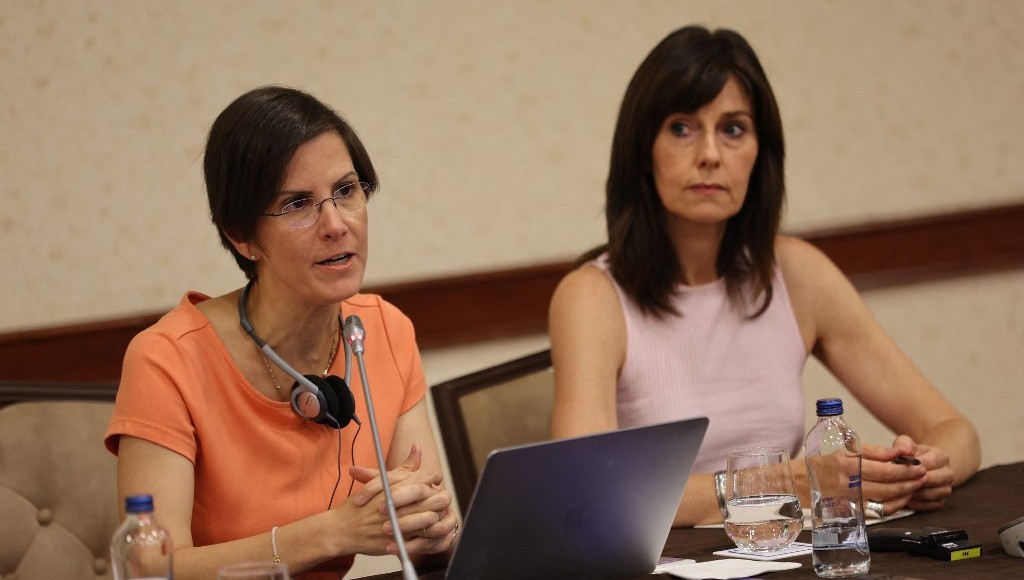The UN rapporteur on violence against women urged Turkey on Wednesday to reverse its decision to drop out of a European treaty combating gender-based abuses, Agence France-Presse reported.
Reem Alsalem expressed “profound regret” at President Recep Tayyip Erdoğan’s decision last year to leave a treaty that Turkey took pride in helping draft more than a decade ago.
The treaty — now enacted by dozens of European countries — requires member states to adopt legislation that strictly punishes domestic abuse and gender-based violence.
Alsalem said at the end of an exploratory mission to Turkey that Erdoğan’s government has made a number of improvements in its legislation on violence against women in the past few years.
But she said Turkish rights leaders were worried that “the withdrawal created confusion on the protection of women.”
“I really urge the government of Turkey to reconsider this decision,” Alsalem told reporters.
Turkey became the first country to sign the convention in 2011 and ratified it by a vote in parliament the following year.
Its supporters argued that Erdoğan did not have the right to issue a presidential decree annulling an international agreement that was approved by lawmakers.
Women’s rights groups tried to contest Erdoğan’s decision in Turkey’s top administrative court, but the court ruled three to two this month that a president’s decision could not be subject to a legal review.
The two dissenting judges said separately that Erdoğan’s actions overstepped his legal bounds.
Alsalem said the best available data showed more than 300 women being murdered in Turkey last year.
“This data is not systematically collected. It is not comprehensive. It does not include some specific forms of violence,” she said.
“Turkey is very well positioned for creating an observatory for collecting data on gender-related killings. I invite the authorities to complement data that they have with data that civil society groups have.”



